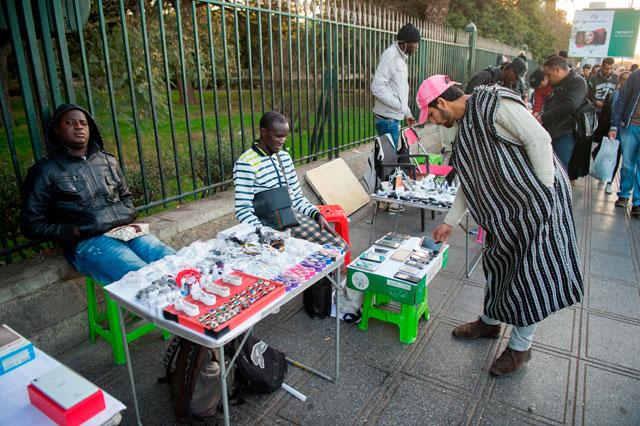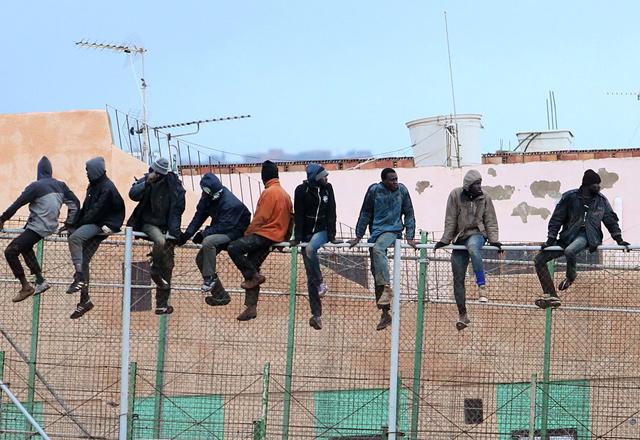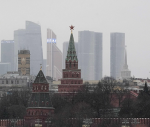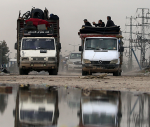You are here
Morocco migrants cling to Europe dreams despite virus lockdown
By AFP - Mar 15,2020 - Last updated at Mar 15,2020
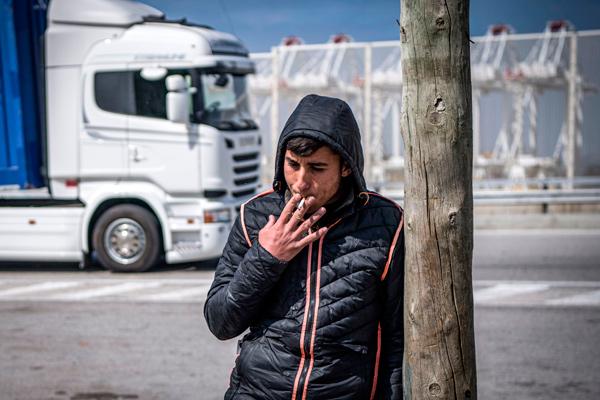
A Moroccan man waits for an opportunity to enter the port of Tanger Med, to attempt to cross to Spain, on Saturday (AFP photo)
TANGIERS, Morocco — Abdelwahed sat outside a vast port on the northern tip of Morocco, looking out for trucks heading towards Spain. Despite a pandemic that has locked down much of Europe, migrants are still attempting dangerous Mediterranean crossings in search of a better life.
"Coronavirus or no, we're going over there for our future," the 22-year-old Moroccan said.
But he admitted that clandestine crossings of the Strait of Gibraltar had become even harder than normal.
"They've tightened controls because of the virus," he said.
Dozens of young men still gather every day near the entrance of Tanger Med, the Mediterranean's biggest maritime cargo terminal, hoping to have a shot at the clandestine crossing.
"Closing the borders doesn't change anything — we don't have any borders," said Ayoub. The 25-year-old in an olive-green sweater said he was ready to do anything to leave his country.
Spain, just 16 kilometres away as the crow flies, has been one of the hardest-hit countries in Europe by the COVID-19 pandemic, reporting over 7,000 infections and 288 cases.
It has responded by imposing a near-total nationwide lockdown.
Morocco has to date only reported 28 cases and one death from the virus, but in recent days has suspended all international air links and shut down passenger ferry links with Europe.
But cargo ferries carrying trucks and containers have continued to operate, keeping alive the migrants' slim hopes of reaching Europe.
'I'm jaded'
"Everyone has their own method. I prefer caravans and coaches," said Abdelwahed.
He crouched on a pavement with his fellow travellers, young men from across the kingdom hoping to find a way to Europe.
Their precarious lives contrast with recent development in Morocco's north: The huge port, an industrial park, high-speed rail links and urban development for wealthy investors.
Inside the terminal, thousands of containers were being loaded onto ships.
Ayoub gazed at the Spanish coastline visible along the horizon and told the story of his life: A childhood in an orphanage, years of wandering and his arrival in Tangiers five years ago to "try his chances".
His most recent attempt to reach Spain failed — just like the others.
"I slipped under a truck and hid inside the port, but a police dog found me," he said.
Abdelkrim, 33 and also Moroccan, said he had managed to reach Spain in 2007. But after living under the radar for ten years in Toledo, he was sent back to Morocco.
"I'm pretty jaded," he said, pulling on a cigarette begged from a passer-by.
At that moment, two young men clambered onto the back of a truck. The driver got out and chased them away.
'By any means'
As many young Moroccans face social exclusion and a lack of jobs, many are tempted to seek a better life in Spain.
Madrid says nearly 32,500 migrants from African countries, including Morocco, entered the country illegally by land or sea in 2019 — although that was half as many as in 2018.
The young men at the port are known locally as "harraga" — usually a slang term for drivers who run red lights.
They scrape by living in makeshift shelters or squats, while a few of the better-off ones rent rooms nearby.
Sometimes they gather in a dingy cafe, amid a haze of cigarette smoke.
An old pool table takes up much of the room, but no one plays. Everyone's attention is on the antique television set airing news on the coronavirus pandemic.
"There's no work" in Morocco, said one young man, who preferred not to give his name "so I don't get caught".
He said he was willing to get to Spain "by any means, under a truck, by sea".
Related Articles
TANGIERS, Morocco — For scores of African migrants, it's a case of "Europe or bust", no matter what Moroccan authorities throw at them in th
RABAT — Unable to reach Europe in search of a better life, Aliou Ndiaye settled in Morocco instead, giving up on his original goal like thou
MADRID — Spain sent 55 migrants back to Morocco on Monday a day after they forced their way into the Spanish territory of Melilla during an


